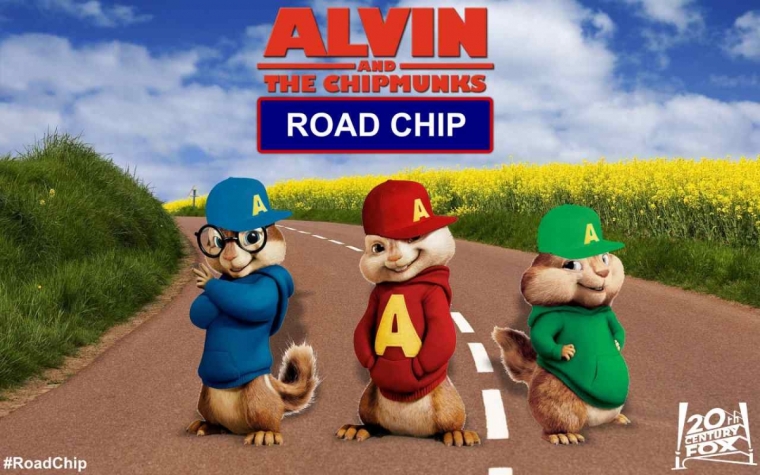Why was Sir-Mix-A-Lot's 'Baby Got Back' in 'Alvin and the Chipmunks'?

FRANKLIN, Tenn. (Christian Examiner) – Digital marketer Ash Greyson spends a lot of his time thinking about movies and working to promote them, but even he grows tired of taking his children to watch supposedly "family films" that turn out to be anything but fully kid-friendly.
Take, for instance, the 2015 PG film "Alvin and the Chipmunks: The Road Chip," in which Theodore sings and dances to the sexually suggestive Sir-Mix-A-Lot song "Baby Got Back." Most of the movie was innocent enough, but he and other parents were left wondering: Why was that in there?
"I then have to go and explain to my mother-in-law why my 5-year-old is singing, 'I like big butts and I cannot lie,'" Greyson told the Christian Examiner, laughing while also making a point.
Greyson, the founder of the digital marketing company Ribbow Media, has worked on some of the top faith-based films of all time, including "War Room." He believes Hollywood and the Christian film industry is missing an opportunity by not making faith-based animation films aimed at the entire family, whether it is a biblical movie or simply a film with biblical references and a strong moral message.
Although a plethora of successful faith-based films have hit theaters in the past five years, not one of them has been animated.
In fact, among the Top 50 grossing Christian films of all time, only three – "The Pirates Who Don't Do Anything" (2008), "Jonah: A Veggie Tales Movie" (2002) and "The Prince of Egypt" (1998) – were animated.
Compare that to the Top 50 mainstream domestic gross list, where a total of 10 animated movies – led by the likes of "Shrek 2" (2004), "The Lion King" (1994) and "Toy Story 3" (2010) – are ranked.
Although those latter two films were G-rated and mostly innocent, Shrek 2 was rated PG for crude humor, a brief substance reference and suggestive content – a fact that supports Greyson's point.
"Please give me more films like 'Prince of Egypt,'" Greyson said. "I know atheist parents who will let their kids watch 'Prince of Egypt.'"
Although animated films are notoriously more expensive to make, Greyson said he thinks the Christian community would "show up in droves" if the film is done well.
Scott Wysong, an associate professor of business at the University of Dallas, is another faith-based market expert who believes the Christian community would support an animated faith film. Wysong is a branding expert who gives business advice to filmmakers.
"Obviously, kids are a big market for toys, and so if you've got a faith-based animated movie, then you can tie in with retailers and fast-food restaurants," Wysong told CE. "I think the whole kid market would be lucrative."
Although some mainstream restaurants may not be as quick to support a Christian animated film with toy giveaways, other restaurants – such as Chick-fil-A – might do so, Wysong added.
Animated films allow studios to "get the whole family there" in the theater, perhaps doubling or even tripling the number of tickets that otherwise would be sold, he said.
Greyson said that even with the best of faith-based films, you "have to get a babysitter."
"We have to plan ahead," Greyson said of him and other parents with small children. "I can't take my kids because a lot of these movies deal with adult issues. To me, the lack of animated films is the biggest disconnect [in the faith film industry] that we haven't cracked."